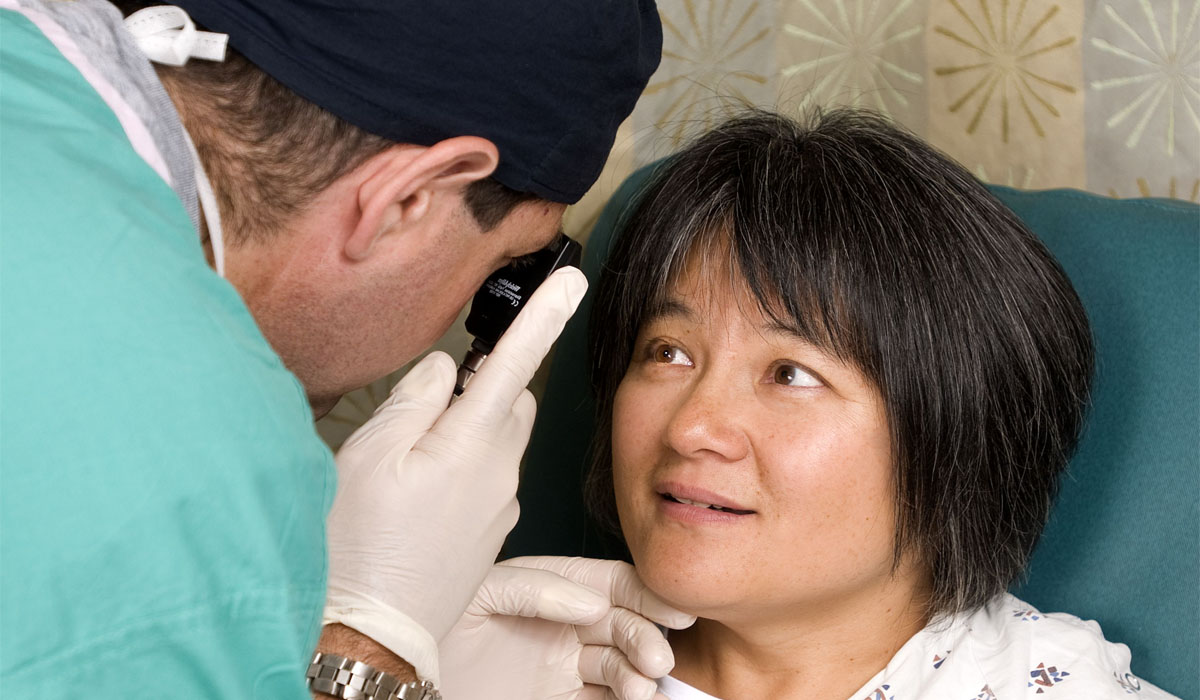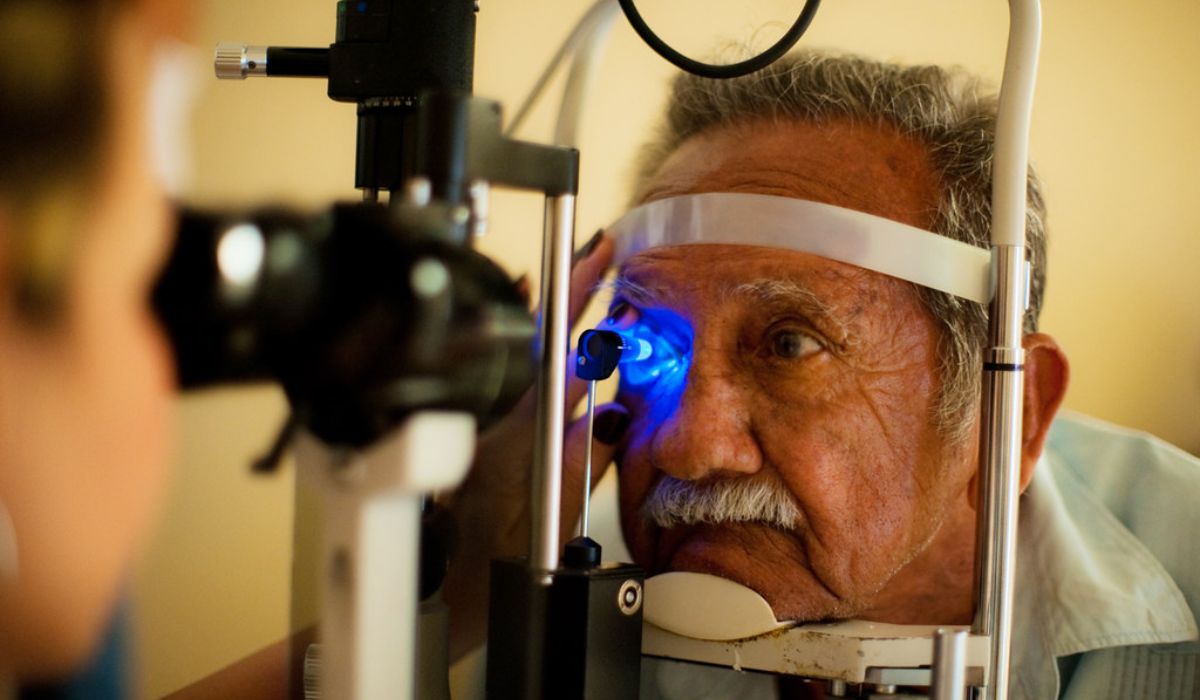
Cataract And Macular Degeneration Screenings: Protect Aging Eyesight
Screening Reminder: Protect Aging Eyesight
As we get older, our bodies have more challenges. This can include needing a new hip, having diabetes or heart disease, and many more issues. These are hard on the healthcare system and make it hard to enjoy life. Macular degeneration and cataracts are two common eye diseases. You might not notice them initially, but they can worsen over time. But it’s important to get them checked by a doctor. DeCarlo Optometry offers eye services to check for these diseases. If you’re looking for an eye check up near me – Contact us today to get started!
What Are Cataracts And Macular Degeneration?
As we get older, we might have problems with our eyes. Two common issues are cataracts and macular degeneration. If we know about these problems, we can take better care of our eyes and stop them from worsening.
Cataracts
A cataract is when the lens in your eye gets cloudy. This can make it hard to see. The lens is what helps focus light on the retina. Aging, an eye injury, or exposure to UV radiation often cause cataracts.
If you have a cataract, things will look blurry. It might be hard to see at night or in the sun. The colors might look less bright. Cataracts can be fixed by removing the old, cloudy lens and putting in a new, fake one.
Macular Degeneration
Macular degeneration is a condition that affects the central part of the retina. This part is called the macula. The macula helps us see things clearly and in detail. When cells in the macula break down, it can cause vision loss.
If you have macular degeneration, it might be hard to see things up close, or straight lines might look wavy. You might also lose your central vision. Macular degeneration is a problem with your eyes. You might need to take vitamins or medicine or undergo surgery, depending on how bad it is.
Two common eye conditions are cataracts and macular degeneration. If we know what conditions cause symptoms, we can take better care of our eyes and prevent more vision loss. If you have vision problems, make an appointment for your vision screenings near me!


Cataracts: Understanding The Symptoms
A cataract is a word for when it is hard to see. It affects lots of people all over the world. With cataracts, the lens gets cloudy. The lens is what helps you see. A dirty lens means insufficient light can get through to your eye, making things look blurry.
Blurry Vision
One early symptom of cataracts is blurry vision. This happens over time. You might need help seeing things far away or reading small print. Sometimes you need more light to see well. In other cases, you might see two of everything or have a light with a circle around it.
Faded Colors
Another symptom of cataracts is a change in the perception of colors. Colors may appear faded or yellowed, and contrasts may become less noticeable. This can make it difficult to distinguish between shades of the same color.
Sensitivity To Light
Cataracts can make it harder to see things, especially when there is a lot of light. This can be dangerous because it makes it hard to see what is happening around you.
Frequent Prescription Changes
If you need new glasses more often than usual, it could be because you have cataracts. Cataracts happen when the lens of your eye gets cloudy. This makes it hard to see.
Difficulty With Night Vision
If you have cataracts, it might be hard to see at night. This can be a problem when driving in low light or moving around in the dark. You might also not be able to see, and lights might look blurry or have rings around them.
If you have cataracts, it is important to get help right away. In many cases, the best way to treat cataracts is with surgery. The doctor will remove the cloudy lens and put in a new one. This can help you see better and feel better.
Cataracts are a common eye problem. They can make things look blurry, make colors seem faded, and make it hard to see at night. You should see an eye doctor immediately if you have any of these symptoms.
Macular Degeneration And Its Symptoms
Macular degeneration is a common eye disease that affects millions of people. It happens when the macula, the part of the eye that sees things clearly in the center, breaks down over time. This makes it hard to see things and can make someone go blind.
Macular degeneration is a problem with your eyes. Here are the things that happen when you have it:
Blurred Vision
One symptom of macular degeneration is blurred vision. This happens when the macula, a part of the eye, is damaged. When this happens, the brain has difficulty processing what it sees. People might also lose their central vision, making it hard to read or drive a car.
A Dark Or Blank Spot In The Center Of Vision
Another common symptom of macular degeneration is a dark or blank spot in the center of vision. This occurs when the macula is damaged, causing a loss of central vision. This can be especially noticeable when looking at a bright background, such as a clear sky or a white wall.
Straight Lines Appear Curved
Macular degeneration is when people can’t see things. Sometimes, straight lines might appear curved. This is because the macula isn’t working right, so it changes how they see things.
Difficulty Recognizing Faces
Macular degeneration is a problem with your eyes. It makes it hard to see people’s faces. This is because the macula helps you see things far away and up close. If you have problems seeing, you might not be able to see your friends and family, even if they are right next to you.
Changes In Color Perception
People with macular degeneration may notice that colors look different. They might look dull or faded. This is because the macula helps us see colors. When the macula is not working well, we cannot see colors.
Macular degeneration is a terrible eye disease. It can make you lose your vision. If you have any of the symptoms listed below, see a doctor right away so they can help you keep your eye.


Treatments To Protect Aging Eyesight
Eye problems are common when people get old. One of them is that the lens of your eye becomes cloudy, and you can’t see very well. The retina is like the screen on a television. If the central part of the retina gets damaged, you can’t see things in the center anymore. With both of these, there are things you can do to make them not as bad.
Treatments For Cataracts
Medications
Sometimes, eye drops or pills can help slow down the progression of cataracts. But these medications will not cure cataracts and only work in some situations.
Surgery
People mostly have cataracts in their eyes when they get older. Doctors fix it and replace their old, cloudy lenses with new, clear ones to let them see better and be happier.
Lifestyle Changes
It is good to wear sunglasses and quit smoking so you don’t get cataracts.
Treatments For Macular Degeneration
Medications
It is suitable for you to wear sunglasses when it’s sunny and not to smoke, because it can prevent you from getting cataracts. A cataract is a cloudy eye.
Vitamin And Mineral Supplements
Taking many vitamins C, E, and zinc might help prevent macular degeneration from worsening.
Low Vision Aids
If you have advanced Macular Degeneration, you can use low-vision aids to help you see better. This includes things like magnifying glasses or special reading glasses.
Surgery
Many people have a disease called macular degeneration. A doctor might suggest surgery or a device in their eye to help them see better.
Cataracts and Macular Degeneration can make it hard to see. But there are ways to help people who have these problems. Surgery, medicine, and different kinds of glasses can all help. It is essential to talk to an eye doctor so they can help you decide what will work best for you.
It is always important to be able to see well, but it becomes even more critical as we get older. We need to protect our aging eyesight as we process. That’s why regular vision screening test for cataracts and macular degeneration are so important. At DeCarlo Optometry, we offer eye exams to help us find problems early. This will help protect aging eyesight for years to come. So don’t wait—if you’re due for a screening or have any concerns about your eyesight, give us a call today at (714) 996-1136. You can also visit our page to schedule an appointment!
DeCarlo Optometry Placentia Offers The Following Services:
Articles We’ve Hand-Picked For You:
Frequently Asked Questions
Quitting smoking or never starting is an important step toward avoiding AMD(Against Age-Related Macular Degeneration). A healthy lifestyle and lowering cholesterol can help reduce your risk of AMD and prevent the dry form of the disease from progressing to the wet form, which can result in permanent vision loss.
The most powerful antioxidants for preventing or reducing the risk of AMD and other eye-related diseases are lutein and zeaxanthin.
Macular degeneration, also known as age-related macular degeneration (AMD), is an eye disorder that causes damage to sharp and central vision. Central vision is required for clear object perception and common daily tasks such as reading and driving.
Wet macular degeneration is a long-term eye condition that causes blurred or blind spots in the central vision. It is typically caused by blood vessels leaking fluid or blood into the macula. The macula is the portion of the retina that provides sharp vision in the direct line of sight.
The primary cause of cataracts and macular degeneration is aging. Other lifestyle factors contributing to the development of both conditions include smoking.
The majority of cataracts are caused by normal changes in your eyes as you age. When you’re young, your eye lens is clear. Around the age of 40, the proteins in your eye’s lens begin to degrade and clump together. This clump causes a cloudy area on your lens, also known as a cataract.
Being 50 or older, smoking, having high blood pressure, and eating a high-fat diet are all risk factors for AMD (Against Age-Related Macular Degeneration). Although there is no cure for AMD, there are treatment options that may help to prevent or slow the disease’s progression.
The risk factor most consistently associated with AMD is smoking. Current smokers have a two to three times higher risk of AMD than nonsmokers, and the risk increases with smoking intensity. Alcohol consumption in moderation is unlikely to increase the risk of AMD.
